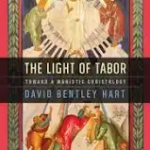Cigarette-Driven Monkeys Composing Hamlet Prove God’s Existence (Jeff Cook) Train a hundred monkeys in a room to randomly strike a keyboard, provide them all the bananas and cigarettes they want, and given enough time one of them will eventually compose Hamlet. In fact, give the room of monkeys an infinite amount of time and they will each compose Hamlet an infinite number of times. How do we explain the apparent design of the universe without a God? A common answer is, “Give matter... Read more















